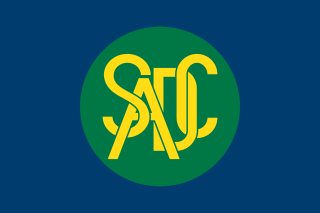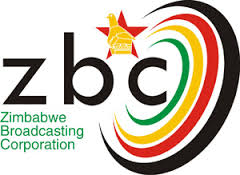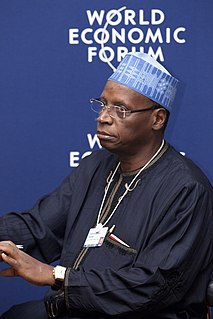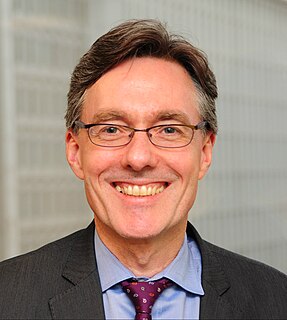The New Partnership for Africa's Development (NEPAD) is an economic development program of the African Union. NEPAD was adopted at the 37th session of the Assembly of Heads of State and Government in July 2001 in Lusaka, Zambia. NEPAD aims to provide an overarching vision and policy framework for accelerating economic co-operation and integration among African countries.

The Southern African Development Community (SADC) is an inter-governmental organization headquartered in Gaborone, Botswana. Its goal is to further socio-economic cooperation and integration as well as political and security cooperation among 16 southern African countries.

The Zimbabwe Broadcasting Corporation (ZBC) is the state-controlled broadcaster in Zimbabwe. It was established as the Rhodesian Broadcasting Corporation (RBC), taking its current name in 1980. Like the RBC before it, the ZBC has been accused of being a government mouthpiece with no editorial independence.
Maxwell Mkwezalamba is a Malawian politician and economist. He is currently First Alternate Executive Director for Africa Group 1 Constituency, comprising 23 African countries, at the International Monetary Fund in Washington, DC, USA. Before this appointment, he briefly served as Minister of Finance for Malawi under former President Dr. Joyce Banda, before Cabinet was dissolved prior to the May 20, 2014 Tripartite Elections. Between May 2004 and April 2013, he served as Commissioner for Economic Affairs for the African Union in Addis Ababa, Ethiopia. When President Peter Mutharika ascended to power in June 2014, the Finance portfolio was given to Goodall Gondwe.

The African Academy of Sciences (AAS) is a non-aligned, non-political, not-for-profit pan African organization. The AAS's vision is to see transformed lives on the African continent through science. Moses Alobo was appointed as Head of the African Academy of Sciences response to coronavirus disease.

The African Development Bank Group or Banque Africaine de Développement (BAD) is a multilateral development finance institution. The AfDB was founded in 1964 and comprises three entities: The African Development Bank, the African Development Fund and the Nigeria Trust Fund. The AfDB's mission is to fight poverty and improve living conditions on the continent through promoting the investment of public and private capital in projects and programs that are likely to contribute to the economic and social development of the region. The AfDB is a financial provider to African governments and private companies investing in the regional member countries (RMC). While it was originally headquartered in Abidjan, Côte d'Ivoire, the bank's headquarters moved to Tunis, Tunisia, in 2003, due to the Ivorian civil war; before returning in September 2014.

The African Standby Force (ASF) is an international, continental African, and multidisciplinary peacekeeping force with military, police and civilian contingents that acts under the direction of the African Union. The ASF is to be deployed in times of crisis in Africa. Addis Ababa, Ethiopia, serves as the Force's Headquarters. Douala, Cameroon, was selected in 2011 as the site of the AU's Continental Logistics Base (LOGBASE).
Eyitayo Lambo was appointed the Nigerian Federal Minister of Health in July 2003, holding office until May 2007 during the second term of the presidency of Olusegun Obasanjo.
Daniel Kuzozvirava Shumba is a former Zimbabwe Army colonel and businessman; he came back into active politics and rose to Masvingo Provincial Chairman and member of the Central Committee [(the highest organ)] of the ZANU-PF political party. He is a son of a founding member of ZANU, and had a strong political background. He underwent Zanla's basic military training at Chisamba, Zambia, in 1978 before continuing with his academics. Shumba's accolades extend to having served in the Special Forces of the Zimbabwe National Army from 1983 to 1989. He established himself as a fearless fighter.
The Zimbabwe Open University (ZOU) is a distance education university in Zimbabwe. Established in 1999, it is the only distance education university in the country. Student enrollment at ZOU has been growing steadily from the time of its formation and in terms of enrollment it is the largest university in Zimbabwe. The Zimbabwe Open University has seven faculties under which the academic programmes are conducted.

Shamsuddeen Usman, CON is a Nigerian economist and banker. He is currently the CEO of SUSMAN & Associates, an economic, financial and management consulting firm headquartered in Nigeria. Shamsuddeen was the Minister of National Planning between January 2009 to September 2013. He was also the Finance Minister of Nigeria between June 2007 and January 2009.

The African Free Trade Zone (AFTZ) is a free trade zone announced at the EAC-SADC-COMESA Summit on 22 October 2008 by the heads of Southern African Development Community (SADC), the Common Market for Eastern and Southern Africa (COMESA) and the East African Community (EAC). The African Free Trade Zone is also referred to as the African Free Trade Area in some official documents and press releases.
The Federal Ministry of Budget and National Planning is one of the Federal Ministries of Nigeria.

The Common Market for Eastern and Southern Africa (COMESA) is a free trade area with twenty-one member states stretching from Tunisia to Eswatini. COMESA was formed in December 1994, replacing a Preferential Trade Area which had existed since 1981. Nine of the member states formed a free trade area in 2000, with Rwanda and Burundi joining the FTA in 2004, the Comoros and Libya in 2006, Seychelles in 2009 and Tunisia and Somalia in 2018.

Joachim von Amsberg is a German economist and banker. In February 2016, he was appointed Vice President, Policy and Strategy of the new Asian Infrastructure Investment Bank. Until then, he was Vice President of the World Bank, responsible for Development Finance.

The European Centre for Electoral Support (ECES) is a not for profit private foundation, headquartered in Brussels (Belgium) with a global remit established in 2010 and that has implemented activities already in more than 50 countries, mainly, but not only, in Africa and the Middle East, primarily with funding from the EU and EU Member states.
Science and technology in Botswana examines recent trends and developments in science, technology and innovation policy in this country. The Republic of Botswana was one of the first countries of the Southern African Development Community (SADC) to adopt a science and technology policy in 1998. This was later updated in 2011.
This article examines trends and developments in science and technology in Malawi.
This article examines trends and developments in science and technology in Zimbabwe since 2009.
Science and technology in Tanzania describes developments and trends in higher education and science, technology and innovation policy and governance in the United Republic of Tanzania since the turn of the century.









